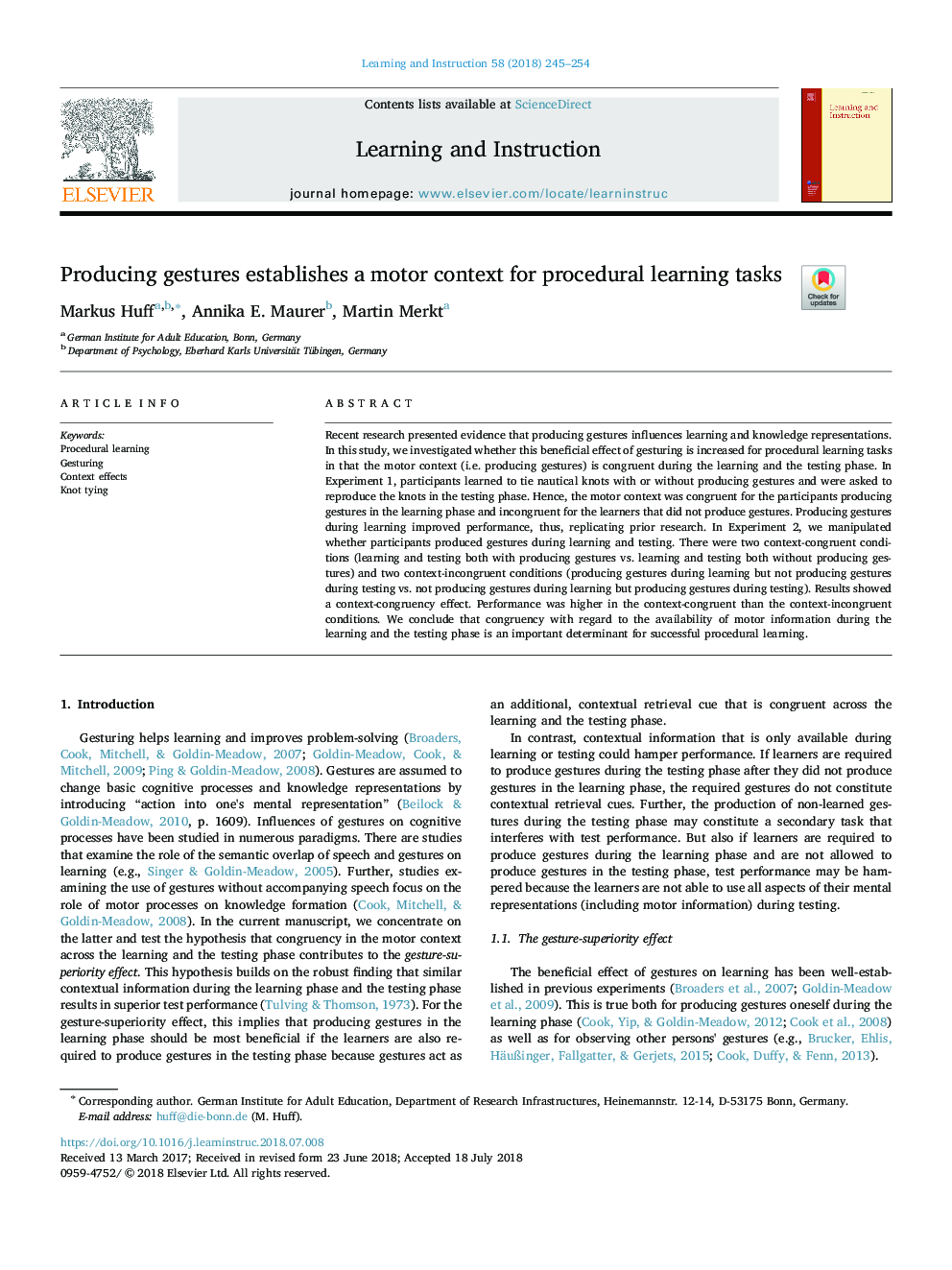| Article ID | Journal | Published Year | Pages | File Type |
|---|---|---|---|---|
| 6845449 | Learning and Instruction | 2018 | 10 Pages |
Abstract
Recent research presented evidence that producing gestures influences learning and knowledge representations. In this study, we investigated whether this beneficial effect of gesturing is increased for procedural learning tasks in that the motor context (i.e. producing gestures) is congruent during the learning and the testing phase. In Experiment 1, participants learned to tie nautical knots with or without producing gestures and were asked to reproduce the knots in the testing phase. Hence, the motor context was congruent for the participants producing gestures in the learning phase and incongruent for the learners that did not produce gestures. Producing gestures during learning improved performance, thus, replicating prior research. In Experiment 2, we manipulated whether participants produced gestures during learning and testing. There were two context-congruent conditions (learning and testing both with producing gestures vs. learning and testing both without producing gestures) and two context-incongruent conditions (producing gestures during learning but not producing gestures during testing vs. not producing gestures during learning but producing gestures during testing). Results showed a context-congruency effect. Performance was higher in the context-congruent than the context-incongruent conditions. We conclude that congruency with regard to the availability of motor information during the learning and the testing phase is an important determinant for successful procedural learning.
Related Topics
Social Sciences and Humanities
Psychology
Developmental and Educational Psychology
Authors
Markus Huff, Annika E. Maurer, Martin Merkt,
